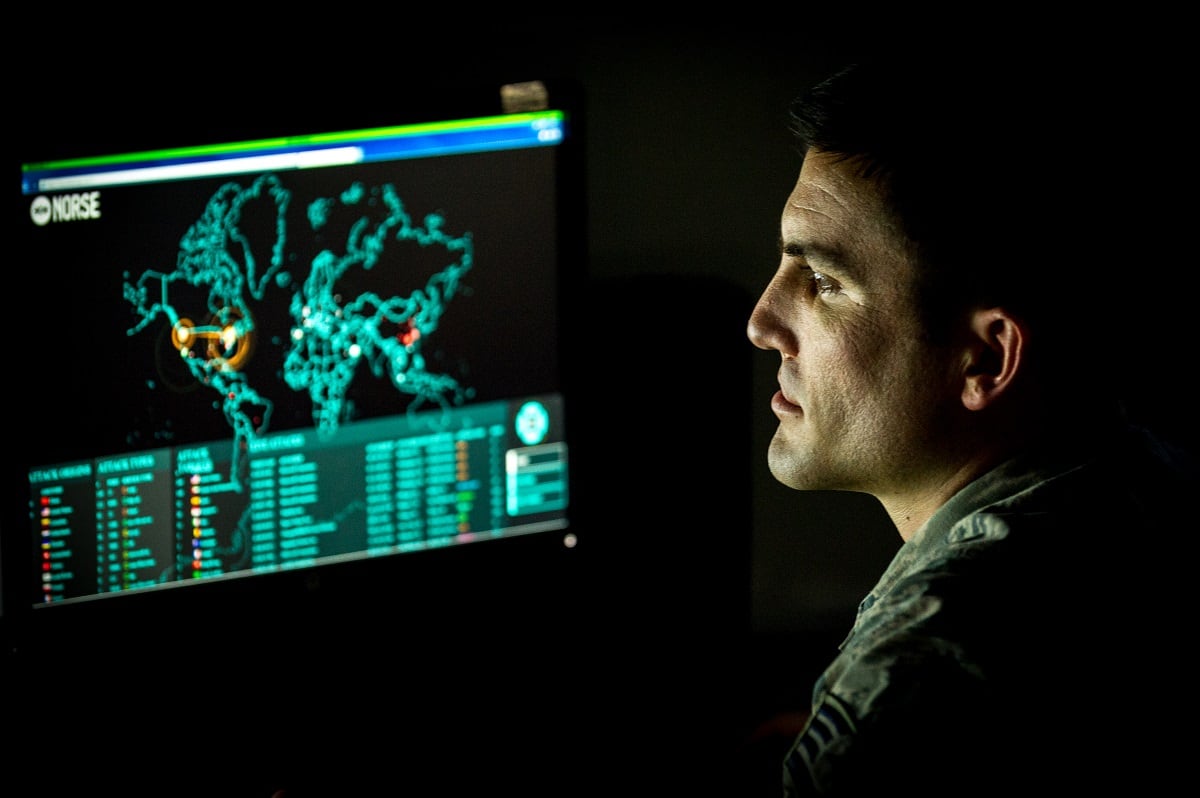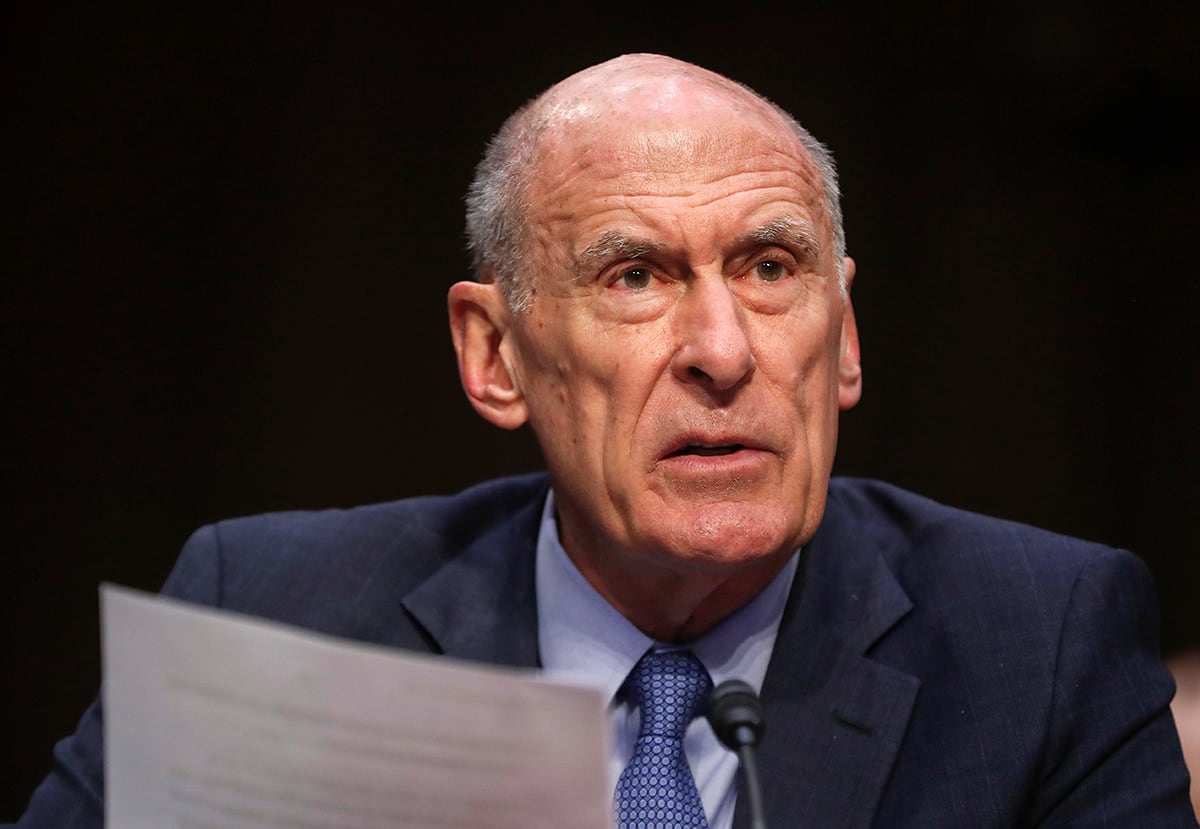WASHINGTON — Warning lights about cyber threats to U.S. national security are “blinking red” and the digital attempts to undermine America are occurring daily, not just at election time, the nation’s top intelligence official said Friday.
Russia has been the most aggressive foreign actor, but cyber threats also are coming from China, Iran and North Korea as well as criminal networks and individual hackers, said National Intelligence Director Dan Coats.
Targets include U.S. businesses, the federal government, the military, state and local governments, academic and financial institutions and critical infrastructure, he said.
"The Department of Homeland Security and the FBI, in coordination with international partners, have detected Russian government actors targeting government and businesses in the energy, nuclear, water, aviation and critical manufacturing sectors," Coats said.
He compared the cyber threat today with how U.S. officials said before 9/11 that intelligence channels were "blinking red" with warning signs that a terror attack was imminent.
"Here we are nearly two decades later and I'm here to say the warning lights are blinking red again," Coats said.
Coats spoke at Hudson Institute, a Washington think tank, shortly after the Justice Department indicted 12 Russian intelligence officers accused of hacking into Democratic email accounts during the 2016 U.S. presidential election and releasing stolen information in the months before Americans headed to the polls.
The Kremlin responded to the indictment by repeating its denial that the Russian state interfered in the U.S. election.
RELATED

Coats said that despite public statements by the Kremlin to the contrary, U.S. intelligence officials continue to see individuals affiliated with the Internet Research Agency, based in St. Petersburg, Russia, creating new social media accounts masqueraded as those of Americans. He said the IRA, a so-called internet troll farm, then uses the fake accounts to drive attention to divisive issues in America.
"We are seeing aggressive attempts to manipulate social media and to spread propaganda focused on hot-button issues that are intended to exacerbate socio-political divisions," he said.
Coats said the U.S. is not yet seeing the kind of electoral interference in specific states and voter databases that occurred in 2016. "However, we fully realize that we are just one click on a keyboard away from a similar situation repeating itself," he said.
He emphasized that focusing on possible election-related attacks, including during the November midterms, misses an important point. He warned of the potential for a crippling cyberattack against critical U.S. infrastructure — a power outage in New England in January or a cyber attack on banks that wipes out people’s life savings.
“These actions are persistent. They’re pervasive and they are meant to undermine America’s democracy on a daily basis, regardless of whether it is election time or not,” Coats said.




